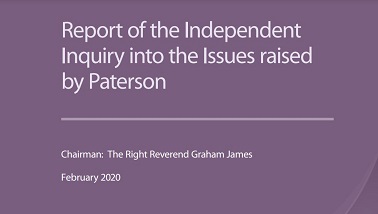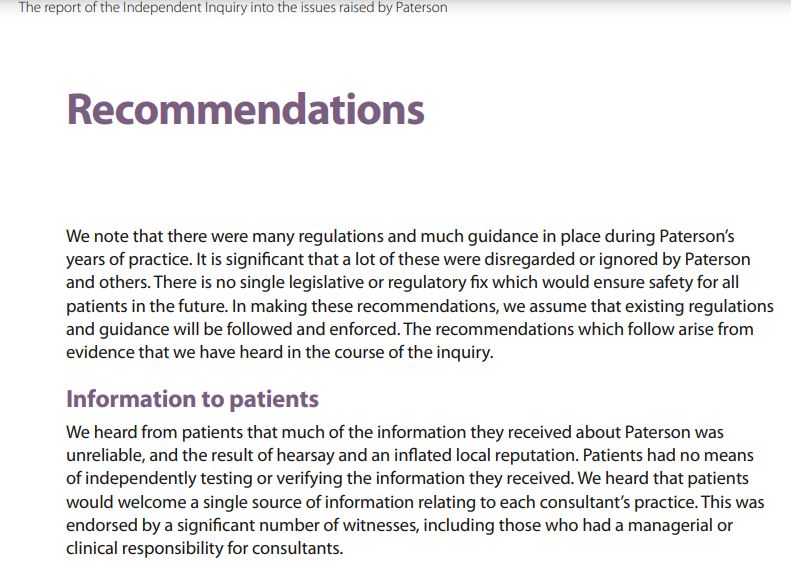
Inquiry report: cover page
As Francis Bacon wrote: ‘Knowledge itself is power’. Few examples so poignantly illustrate this as the case of discredited surgeon Ian Paterson.
The report identified that had patients access to clear, unbiased information; received communication directly; audits undertaken with greater oversight of practice and concerns properly shared, it’s probable that fewer patients would have been harmed.
Along with the governance failures, the authors highlighted the pervading culture which allowed alarms to be silenced and ignored – for concerns to be suppressed. As a medicolegal expert previously working as a clinician at the time Paterson operated, the findings disturbed me, but did not, sadly, totally shock me.
The Government’s response to the Inquiry recognises the issues in knowledge sharing, regulation and systems which permitted this tragedy to occur. While the Government’s comments on the report’s recommendations and sentiment are welcome, several issues remain unresolved. Given that some of Paterson’s crimes date back more than two decades the pace of change is far from ideal, and I believe we can all do more to respond quicker and help reduce avoidable harm.
Systems and process changes across the health sector are continuing to be implemented and governance has improved significantly including the appreciation that anonymised data and information should be shared, especially when concerns arise about patient safety. In this case, knowledge is safer when it’s in more people’s hands.


